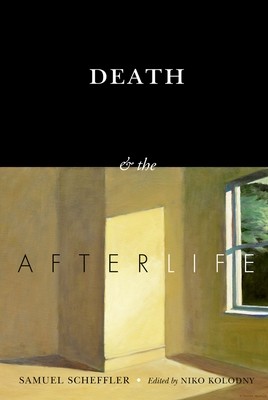
- We will send in 10–14 business days.
- Author: Samuel Scheffler
- Publisher: Oxford University Press, USA
- ISBN-10: 019046917X
- ISBN-13: 9780190469177
- Format: 13.2 x 20.1 x 2 cm, softcover
- Language: English
- SAVE -10% with code: EXTRA
Reviews
Description
Suppose you knew that, though you yourself would live your life to its natural end, the earth and all its inhabitants would be destroyed thirty days after your death. To what extent would you remain committed to your current projects and plans? Would scientists still search for a cure for cancer? Would couples still want children?
In Death and the Afterlife, philosopher Samuel Scheffler poses this thought experiment in order to show that the continued life of the human race after our deaths--the "afterlife" of the title--matters to us to an astonishing and previously neglected degree. Indeed, Scheffler shows that, in certain important respects, the future existence of people who are as yet unborn matters more to us than our own continued existence and the continued existence of those we love. Without the expectation that humanity has a future, many of the things that now matter to us would cease to do so. By contrast, the prospect of our own deaths does little to undermine our confidence in the value of our activities. Despite the terror we may feel when contemplating our deaths, the prospect of humanity's imminent extinction would pose a far greater threat to our ability to lead lives of wholehearted engagement. Scheffler further demonstrates that, although we are not unreasonable to fear death, personalimmortality, like the imminent extinction of humanity, would also undermine our confidence in the values we hold dear. His arresting conclusion is that, in order for us to lead value-laden lives, what is necessary is that we ourselves should die and that others should live. Death and the Afterlife concludes with commentary by four distinguished philosophers--Harry Frankfurt, Niko Kolodny, Seana Shiffrin, and Susan Wolf--who discuss Scheffler's ideas with insight and imagination. Scheffler adds a final reply.
EXTRA 10 % discount with code: EXTRA
The promotion ends in 21d.00:46:17
The discount code is valid when purchasing from 10 €. Discounts do not stack.
- Author: Samuel Scheffler
- Publisher: Oxford University Press, USA
- ISBN-10: 019046917X
- ISBN-13: 9780190469177
- Format: 13.2 x 20.1 x 2 cm, softcover
- Language: English English
Suppose you knew that, though you yourself would live your life to its natural end, the earth and all its inhabitants would be destroyed thirty days after your death. To what extent would you remain committed to your current projects and plans? Would scientists still search for a cure for cancer? Would couples still want children?
In Death and the Afterlife, philosopher Samuel Scheffler poses this thought experiment in order to show that the continued life of the human race after our deaths--the "afterlife" of the title--matters to us to an astonishing and previously neglected degree. Indeed, Scheffler shows that, in certain important respects, the future existence of people who are as yet unborn matters more to us than our own continued existence and the continued existence of those we love. Without the expectation that humanity has a future, many of the things that now matter to us would cease to do so. By contrast, the prospect of our own deaths does little to undermine our confidence in the value of our activities. Despite the terror we may feel when contemplating our deaths, the prospect of humanity's imminent extinction would pose a far greater threat to our ability to lead lives of wholehearted engagement. Scheffler further demonstrates that, although we are not unreasonable to fear death, personalimmortality, like the imminent extinction of humanity, would also undermine our confidence in the values we hold dear. His arresting conclusion is that, in order for us to lead value-laden lives, what is necessary is that we ourselves should die and that others should live. Death and the Afterlife concludes with commentary by four distinguished philosophers--Harry Frankfurt, Niko Kolodny, Seana Shiffrin, and Susan Wolf--who discuss Scheffler's ideas with insight and imagination. Scheffler adds a final reply.


Reviews